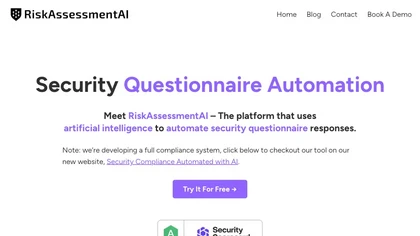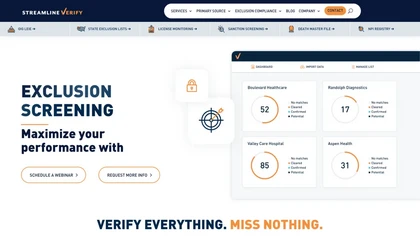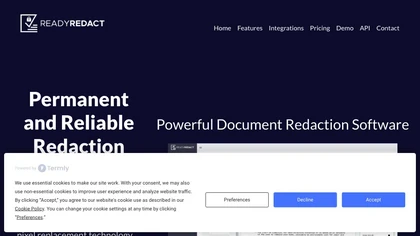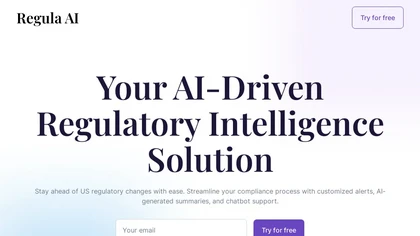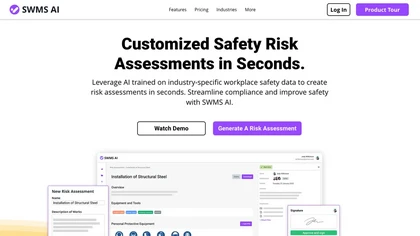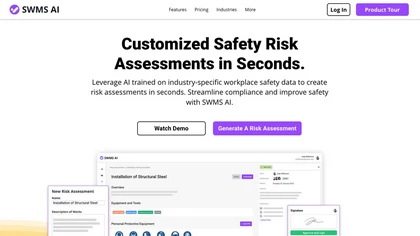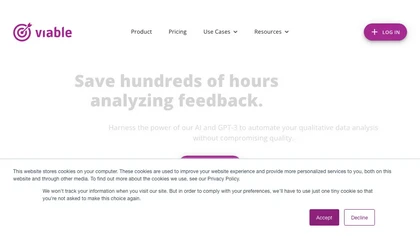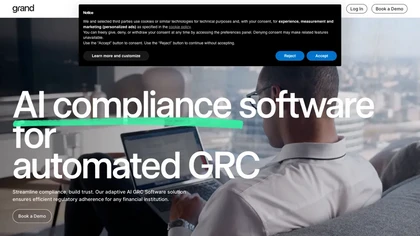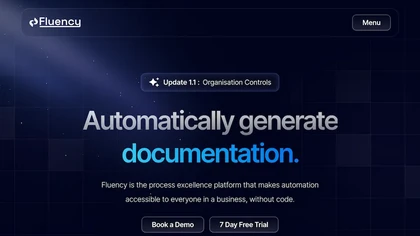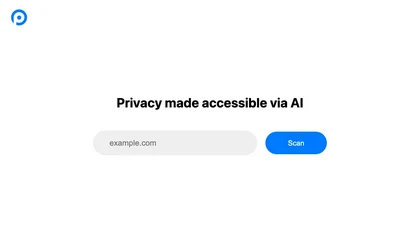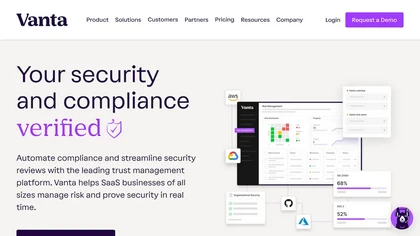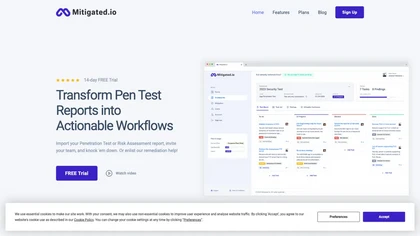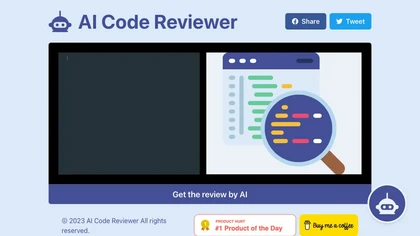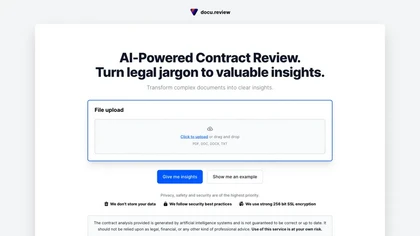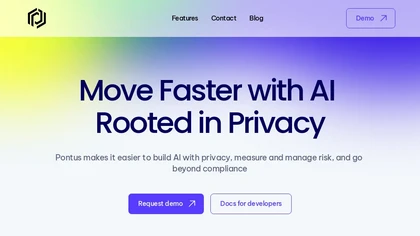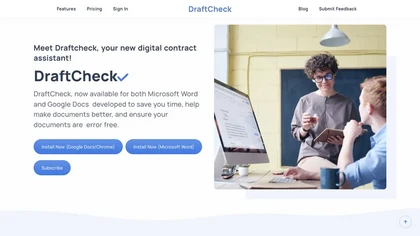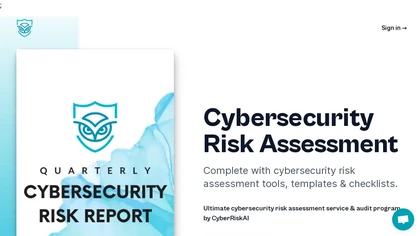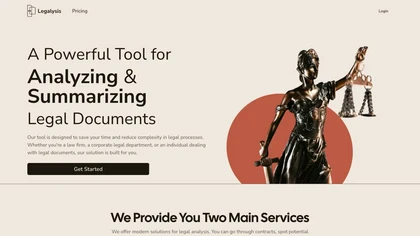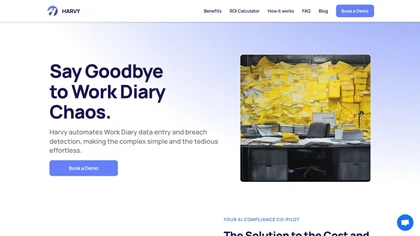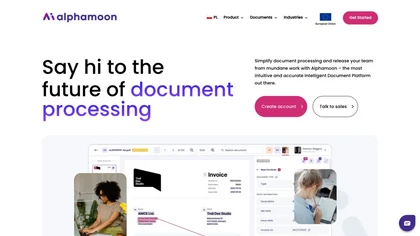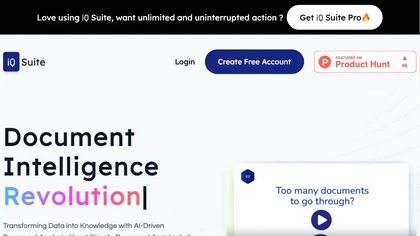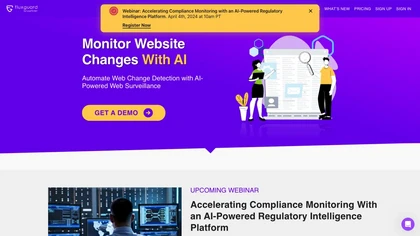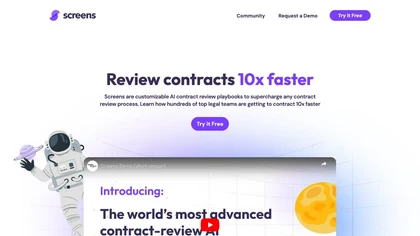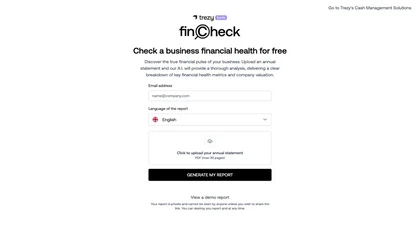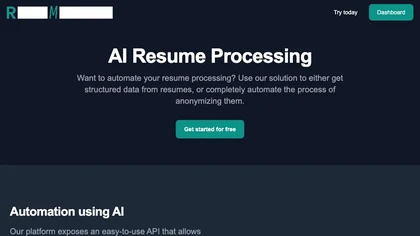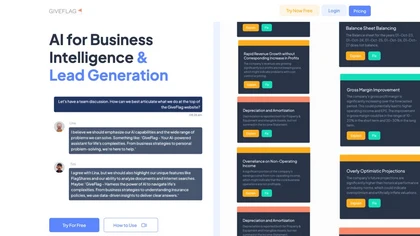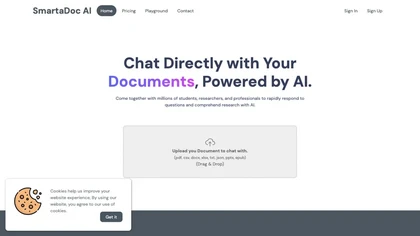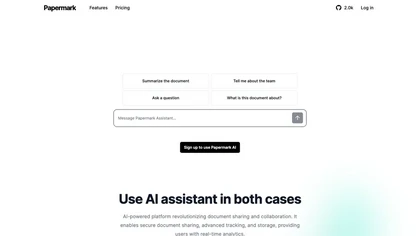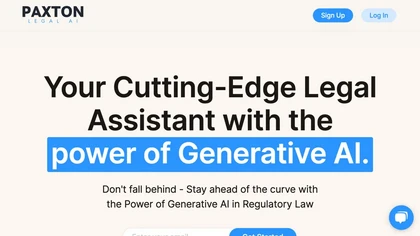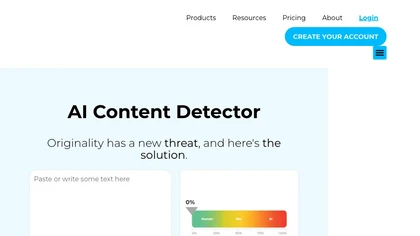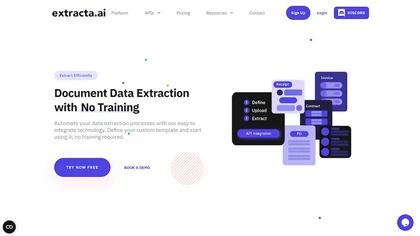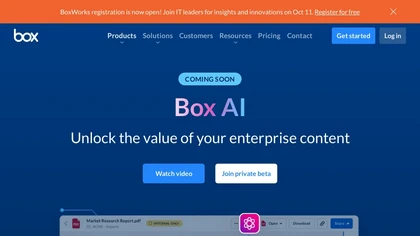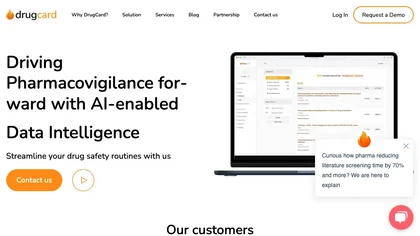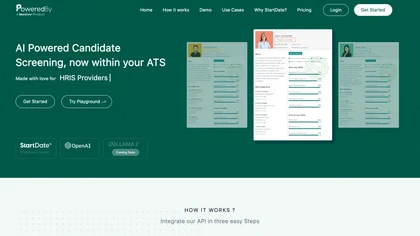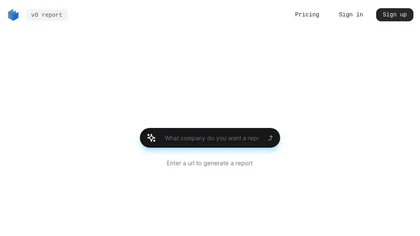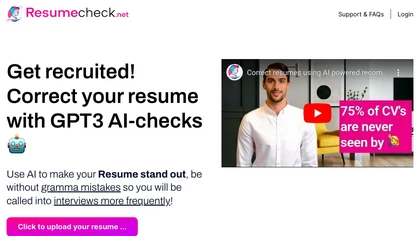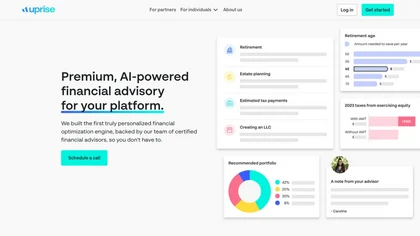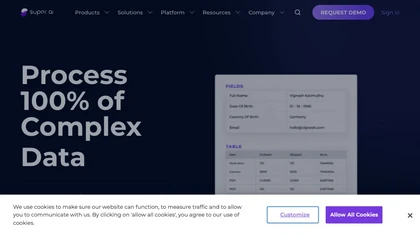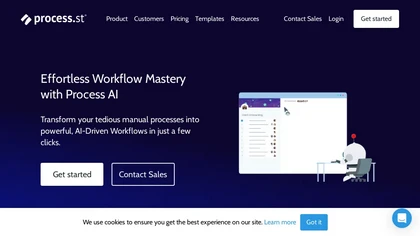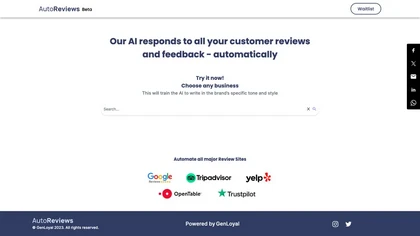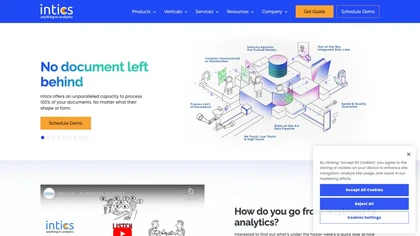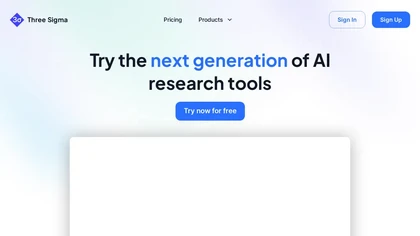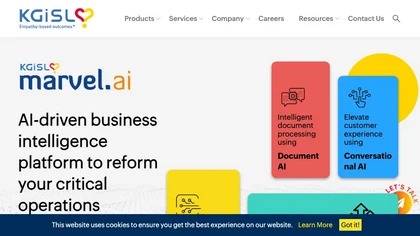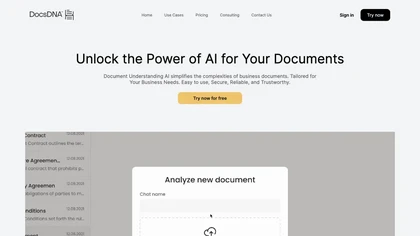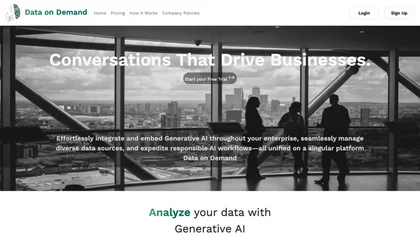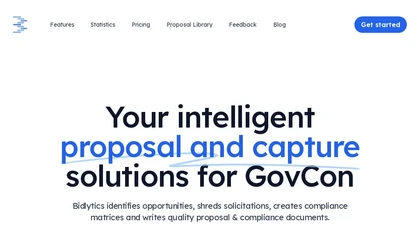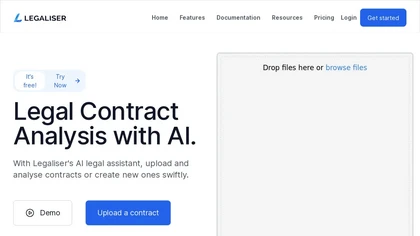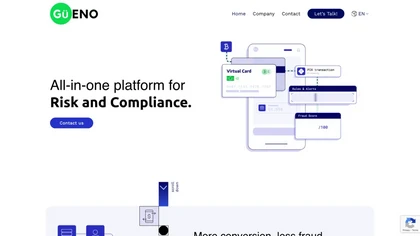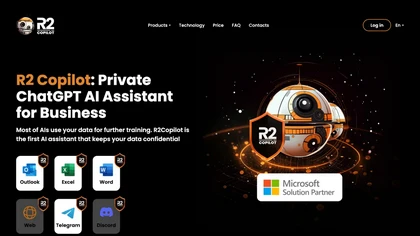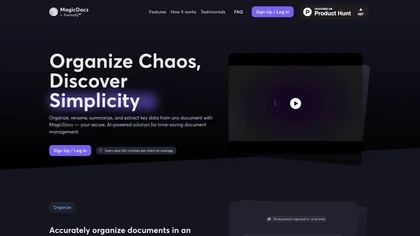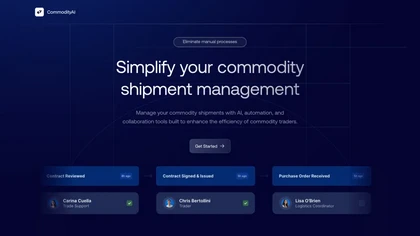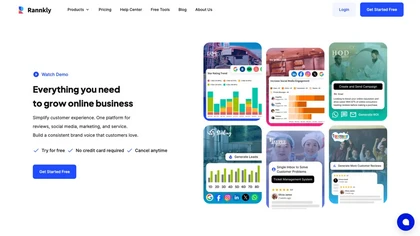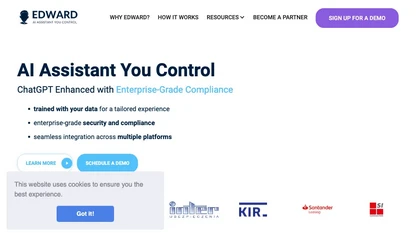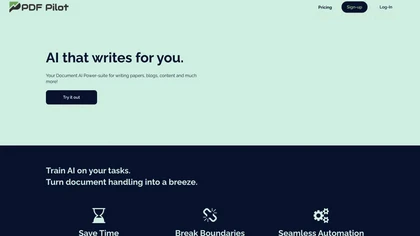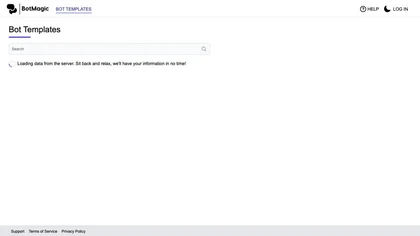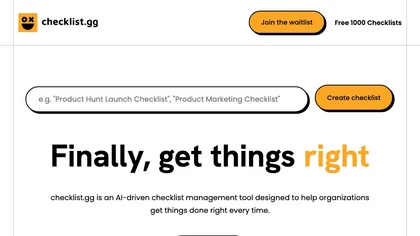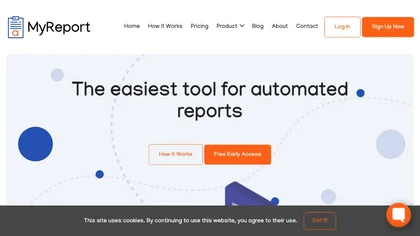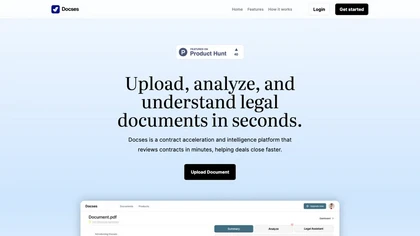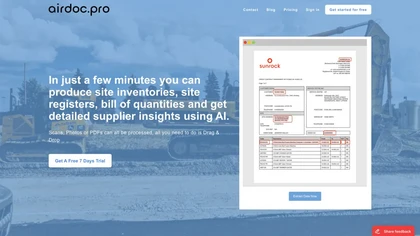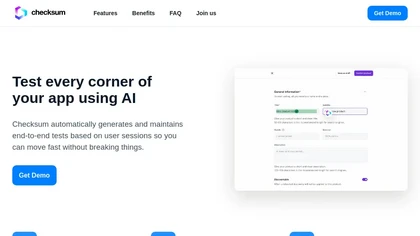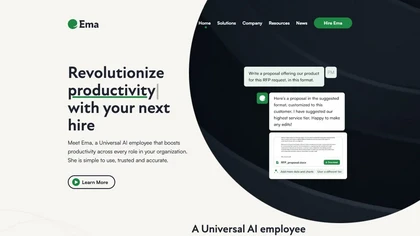AI use cases for Compliance
Generative AI can be applied in various applications for compliance. Here are some examples to explore below for inspiration with AI tools to get you started with using AI in compliance.
🛠️ 70 AI tools for Compliance
Explore a dynamic list of some of the most popular tools to get you started with various AI use cases and applications for Compliance to streamline your workflows and productivity today.
RiskAssessmentAI features
- Automate security questionnaire responses
- Scan documentation
- Build knowledge base
- Support various assessment formats
- Collaboration between teams
Streamline Verify features
- Screening against various databases including OIG LEIE, state exclusion lists, license monitoring, sanction screening, death master file, and NPI registry
- One-stop portal for quick identification and resolution of compliance screening issues
- API integration for future compliance needs
- Enhances efficiency in executing exclusion screening and credential management
- Trusted by over 10,000 establishments
ReadyRedact Document Redaction features
- Redacting
- Documents
- Privacy
- Data protection
- Compliance
- Gdpr
- Ccpa
- Lgpd
- Popi
- Hipaa
Regula.ai features
- Provides customized alerts
- Generates ai-summaries
- Natural language query support
- Simplifies compliance
- Helps smbs stay informed about regulatory changes
SWMS features
- AI risk assessments
- Safety Co-Pilot integration
- Customization options
- Quickly generate safe work sequences
- AI-powered safety recommendations
SWMS AI features
- Tailored risk assessments generation
- Customizable safety policies
- Personalized document generation
- Integration of AI assistant for safety information
- Streamlining compliance processes
viable features
- Automated qualitative data analysis
- Customer feedback understanding
- Nlp technology
- Feedback analysis
🔥
Create your account, save tools & get personal recommendations
Receive a weekly digest of our handpicked top tools.
Unsubscribe anytime
Grand features
- Automated GRC software
- Efficient regulatory adherence
- Compliance workflows automation
- Policy and regulatory news monitoring
- Insights into regulatory changes
Fluency.com features
- Automated Process Documentation
- Process Insights
- AI Assistant
- Automations
- Audit View
Privacy Observer features
- Automatically scans privacy policies
- Comprehensive score
- Detailed information on data handling
- Unlimited scans
- Anonymous checks
Vanta features
- Automating security compliance processes
- Integration with over 300 security tools
- AI capabilities for accelerating security workflows
- Vendor risk management assistance
- Compliance with over 25 frameworks
Mitigated.io features
- Transforms penetration test risk assessment reports into actionable workflows
- Leverages collaborative workspaces for task assignment and progress tracking
- Provides AI-enriched mitigation guidance for security vulnerabilities
- Supports easy import of assessment reports
- Enables users to enlist security mitigation services directly from the dashboard
AI Code Reviewer features
- Automatically analyzing code for syntax errors and security vulnerabilities
- Suggesting improvements and best practices for code quality
- Identifying potential bugs and areas for optimization
- Generating automated test cases to ensure correctness of the code
- Tracking code changes and providing historical reports on code quality
Docu features
- Document upload functionality
- Summarization of legal documents
- Identification of key points and critical clauses
- Alerts for potential risks and beneficial clauses
- Utilization of AI algorithms for streamlining document review process
Pontus features
- Privacy-focused ai platform
- Smart anonymization feature
- Intuitive dashboard for auditing compliance
- Trust-made-easy components
- Secure document storage and privacy-aware caching
- Works with common llm providers
- Incorporates toxicity checking
DraftCheck features
- Automated document review processes
- Surface formatting errors, cross-references, term definitions, and inconsistencies
- Multi-document conflict checks
- Document history tracking
- Local processing for enhanced privacy
Cyberriskai features
- Cybersecurity risk assessment
- Automated quarterly risk audits
- Nist cybersecurity audit framework
- Comprehensive assessment report
- Employee cybersecurity practices
Legalysis features
- Contract risk analysis
- Document summarization
- Legal Language Model (LLM)
- Cross-country risk pointing
- Time-saving document summarization
Harvy features
- Automated work diary data entry
- Breach detection
- AI-driven automation for reducing human error risks
- Fast notice-to-produce reporting
- Online access to work diary sheets for up to 3 years
Alphamoon features
- Document automation
- AI-powered
- Error detection
- Optimization tools
- Detailed statistics and analytics
iQ Suite features
- Uploading pdf files
- Crafting queries for document insights
- Automatically detecting and extracting data
- Presenting extracted data in charts and tables
- Integrating with other apps through rest api integration
Fluxguard features
- Web Change Monitoring using generative AI
- Screenshots and pixel change detection
- Text change detection and network analysis
- Real-time or scheduled report dispatch
- Email reports with screenshots and text changes
Screens features
- Customizable AI contract review playbooks
- Instant redline suggestions within Microsoft Word
- Ability to run thousands of contracts at once using the Screens app
- Secure and powerful repository for storing contracts
- Expert-crafted playbooks with a focus on accuracy, trust, privacy, and data security
FinCheck by Trezy features
- Financial health assessment
- Annual statements analysis
- Multilingual reports
- Privacy control
- Security features
ResuMetrics features
- Resume Analysis API
- Automation using AI
- Candidate Onboarding Automation
- PII Redaction Automation
- Resume Scoring
GiveFlag features
- Analyze various documents such as business intelligence reports, form 10-K filings, policy analysis, contracts
- Extract relevant information from sources like academic papers, privacy policies, insurance reviews
- Automate administrative and transactional tasks
- Train GPT-based engines with expert knowledge
- Ensure data security with restricted access to files and chat messages
Applicant AI features
- Identify and assess qualified candidates
- Automate routine tasks
- Ensure compliance with applicable laws
- Provide comprehensive analytics and insights
- Streamline hiring process
- Reduce costs
SmartaDoc AI features
- Support for multiple file formats like PDF, CSV, DOCX
- Chat history for tracking interactions
- Document summarization capabilities
- Quick starting questions to facilitate user engagement
- Efficient extraction of key information from documents
PrivacyQuest features
- Record processing activities management
- Incident/breach management
- Individual rights management
- Consent management
- Automated document generation
Papermark features
- Secure document sharing
- Real-time analytics and insights
- Grammar checking
- Content summarization
- Custom link sharing
Paxton.ai features
- Legal research
- Drafting of memos, briefs, and client communications
- Customized templates
- Automatic citation formatting in bluebook style
- Comparison of versions of laws and regulations over time
Crossplag features
- Detects human vs ai-generated text
- Uses machine learning algorithm and natural language processing techniques
- Provides fast, accurate analysis
- Easy to use with instant feedback
- Free to use and does not store analyzed data
Extracta.ai features
- Advanced OCR System
- Fine-tuned Model for data extraction
- Seamless API integration
- Competitive pay-as-you-go pricing model
- Up to 99% accuracy without prior training
Box AI features
- Secure content management
- Workflow automation
- Whiteboarding and visual collaboration
- E-signature functionality
- Integration with connected apps
- Customization
- Privacy and security of sensitive content
- Ai-powered content insights
DrugCard features
- Automates drug safety routines
- Multiple languages and countries
- High-performance screening
AnythingLLM features
- One-click Installation
- Runs locally
- Fully private
- Custom models integration
- Documents ingestion support
PoweredBy features
- Integration with ATS and HRIS providers
- API key generation for screening requests
- Utilizes proprietary model for job analysis
- Includes NLP and computer vision applications
- Proficiency in machine learning frameworks
v0 report features
- Custom report generation
- Web scraping
- Automated insights
- File Uploading
Equixly features
- Continuous scanning of APIs for security vulnerabilities
- Detection and fixing of security issues in development process
- Scalable API pentesting capabilities
- Mapping of attack surface and inventory of API landscapes
- Transparent compliance reporting model
Resume Check features
- Resume optimization
- Job role matching
- Industry-specific analysis
Uprise Embedded features
- AI-powered financial advisory platform
- Personalized financial optimization engine
- Automating regulatory compliance
- Concierge services for comprehensive financial planning
- Flexible integration options and white-label solutions
SuperAI features
- Automation of business processes
- Conversion of unstructured data to ai applications
numerous features
- Categorization
- Extraction
- Data Cleaning
- Sentiment Analysis
- Automate with AI
Process AI features
- Workflow generation
- Manage due dates and timelines
- Assign tasks to team members
- Built-in approval processes
- Document analysis
AutoReviews AI features
- Automated response generation
- Customizable tone and style
- Training capability
- Actionable insights
- Integration with major review sites
Intics features
- Document processing for all types of documents
- Extraction of valuable data from handwritten documents
- Pre-trained models for various industries
- Data lake for pure data analysis
- Auto asset classification for actionable insights
Three Sigma features
- Advanced search technology
- Imagine assistant
- Chatgpt plugin
MarvelAI
4.6MarvelAI features
- Comprehensive data analysis
- Informed decision-making
- Superior customer experience
- 67% reduction in operational costs
- 100% data privacy
Contractify features
- Automatic contract tasks and notifications
- Proactive deadline management
- Secure contract repository
- Efficient contract approval flows
- AI capabilities for contract analysis and digitization
DocsDNA features
- Streamlined document solutions
- Collaborative editing
- User management capabilities
- Language adaptability features
- Customizable document handling
Data on Demand features
- Seamless integration of generative AI throughout enterprises
- Management of diverse data sources
- Expedited responsible AI workflows
- Efficient extraction and analysis of relevant data
- Visualization of complex datasets
Bidlytics - AI for GovCon features
- Enhanced Privacy & Security
- Seamless Bid Discovery
- Automatic Solicitation Shredding
- Compliance Matrix on Autopilot
- Fast & Accurate Proposal Generation
CYBER AI features
- Upload security reports
- Understand security reports
- Unlock data breach reports
- Guide through step-by-step threat hunting process
- Uncover potential cybersecurity threats
Legaliser features
- Contract analysis
- Drafting
- Fairness assessment
- Risk analysis
- Anomaly detection
AI-FraudGuard Ecommerce features
- Contactless conversion
- Fraud prevention
- Transaction monitoring
- Compliance processes automation
- Real-time monitoring
R2 Copilot features
- Data privacy focus
- Secure infrastructure integration
- Task assistance (email replies, data analysis, drafting)
- Beneficial for professionals from various sectors
- Emphasis on data security and privacy compliance
Magic Docs features
- Organize documents
- Rename documents
- Summarize documents
- Extract key data
- Enterprise-level security
CommodityAI features
- Automated shipment processes
- Auto-generated shipping nominations
- Real-time shipment tracking
- AI-driven performance analytics
- Smart data extraction
Rannkly features
- Unified inbox for managing review replies
- Automated review analysis for insights
- Competitor analysis
- Automated responses powered by AI
- Enhancing online reputation and customer experiences
Edward features
- Seamless integrations
- Data analysis from various business systems
- Tailored experiences
- Security and compliance
- Expand functions
PDF Pilot features
- Automated document tasks handling
- Training with custom examples
- Next-generation information processing
- Contextual document editing
- Data extraction and comprehensive analysis
BotMagic features
- Interpreting and analyzing documents in Confluence
- Swift document summaries
- Custom queries for deeper exploration
- Jira ticket handling and summarization
- Advanced conversational experiences with information security oversight
checklist.gg features
- Checklist management
- Task management
- Workflow management
- Real-time collaboration
- Integration with existing tools
MyReport features
- Automate data collection
- Automate citation
- Description of report topic
- Review of report
- Send report
Docses features
- Automated summarization of legal documents
- Identification of red flags and critical clauses using advanced algorithms
- Real-time conversations with an AI legal assistant
- Caters to various professionals and industries
- Assistance in understanding legal jargon and making informed decisions
Airdoc.Pro features
- Data extraction
- Document scanning
- Data categorization
- Automated organization
- Material delivery tracking
Checksum.ai features
- Auto-generated tests
- Comprehensive coverage
- Automatic adaptation to code changes
- Easy integration within minutes
- Compatibility with open-source frameworks
Ema features
- Generative AI integration
- Emafusion™ model
- Data governance and security focus
- Integration with hundreds of enterprise apps
- Workflow automation across multiple applications
Codeball features
- Find bugs
- Improve code quality
- Ship faster with higher confidence
- Recognize risky code changes
- Reduce review time by up to 60%
